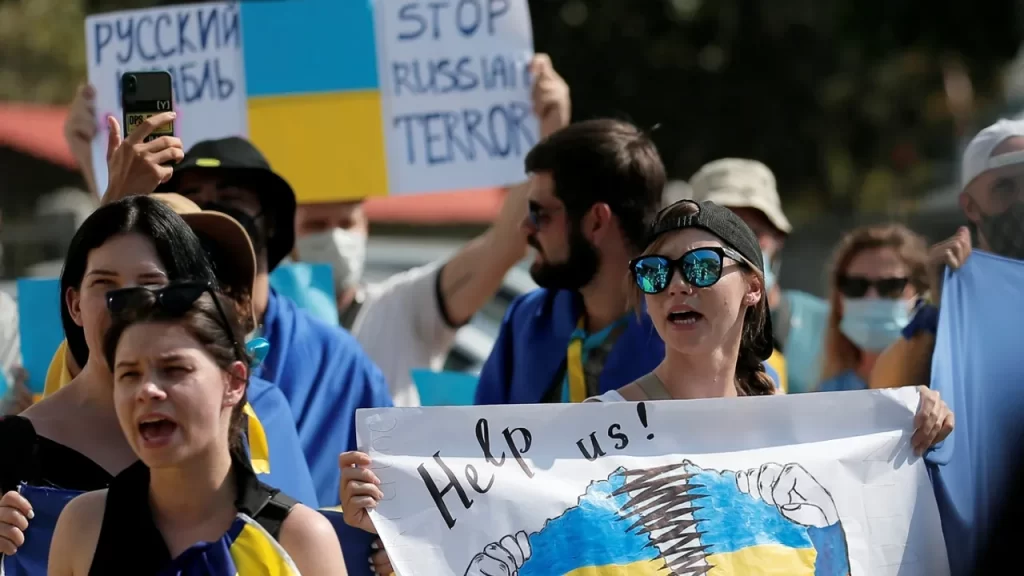……Crackdown on Russian and Ukrainian Tourists Sparks Controversy and Investigation
Discover the growing controversy in Sri Lanka as the government takes action against Russian and Ukrainian tourists involved in illegal businesses. President Wickremesinghe orders an investigation into the directive, balancing law enforcement with diplomatic considerations.

In an unexpected move that has stirred both national and international attention, the Sri Lankan government finds itself at the center of a growing controversy. Following a report by the Daily Mirror on the burgeoning involvement of Russian and Ukrainian tourists in unregistered and illegal businesses, the Department of Immigration and Emigration acted swiftly, issuing a directive for all long-term visitors from these countries to exit Sri Lanka by March 7, 2024. This directive, aimed at curbing the alleged exploitation of tourist visas for illicit activities, particularly in popular tourist destinations such as Weligama and Arugam Bay, has prompted President Ranil Wickremesinghe to order an immediate and thorough investigation into its issuance without cabinet approval.
The Heart of the Matter: Visa Extensions and Unregistered Businesses
The core issue stems from allegations that some Russian and Ukrainian tourists have been abusing the hospitality of Sri Lanka by engaging in unregistered businesses, bypassing tax obligations, and excluding local stakeholders from economic opportunities. Initially, in a gesture of goodwill amid the Russia-Ukraine conflict, Sri Lanka had extended visas to affected tourists free of charge. However, with the normalization of travel and the resumption of direct flights, the government reevaluated the necessity of these extended visas, only to uncover a web of illegal activities that necessitated a retraction of this leniency.
A Delicate Balance: Tourism and Diplomacy
The decision to revoke visa extensions and demand the departure of long-staying tourists from these two nations is not without its complications. Russia remains a significant market for Sri Lankan tourism, a sector that the island nation heavily relies on for economic recovery and growth. The government is now faced with the delicate task of addressing illegal activities and ensuring compliance with local laws, without alienating a key demographic of tourists or straining diplomatic relations with Russia. The investigation ordered by President Wickremesinghe into the unilateral action taken by the Immigration Department underscores the careful approach the government intends to take, seeking solutions that balance law enforcement with economic and diplomatic considerations.
Looking Ahead: Implications and Expectations
As the investigation unfolds, stakeholders from various sectors are keenly watching to see how Sri Lanka navigates this complex issue. The outcome could set precedents for how the country manages its visa policies and deals with illegal businesses run by foreigners, all while maintaining its appeal as a tourist destination and its relationships with other nations. The Sri Lankan government’s response to this challenge will likely influence future policy decisions and the country’s reputation on the global stage.
The controversy surrounding the directive and the subsequent investigation highlights a broader challenge facing many tourist-dependent economies: how to welcome visitors and their economic contributions without compromising on legal and ethical standards. As Sri Lanka works through this quandary, the lessons learned could provide valuable insights for other nations grappling with similar issues.
 Arugam Forum
Arugam Forum Arugam Photo Galleries on Picasa
Arugam Photo Galleries on Picasa Old Website
Old Website Press Coverage
Press Coverage Surf Forecast for Arugam Bay
Surf Forecast for Arugam Bay
0 Responses to “Sri Lanka’s Visa….”